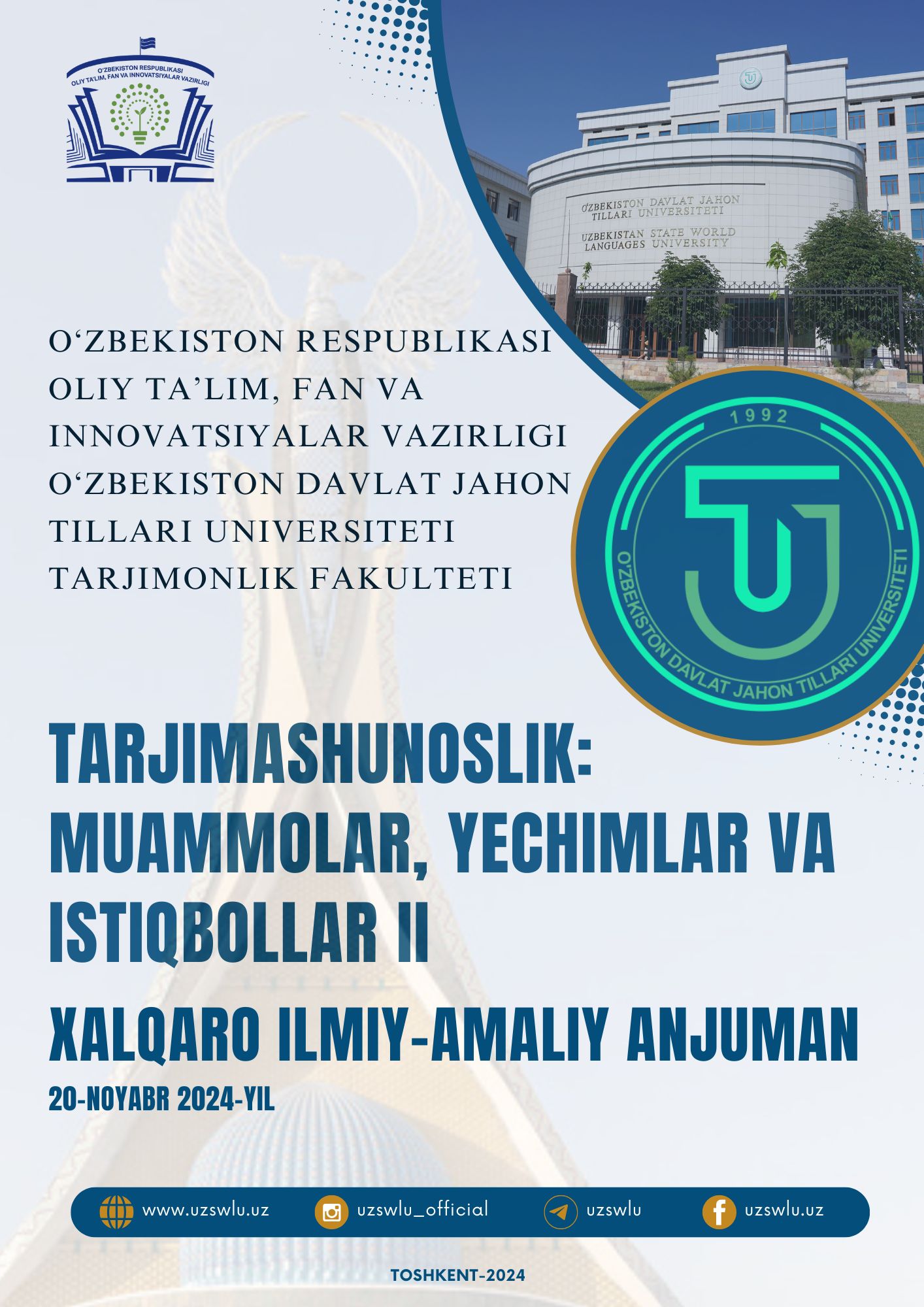POLITICAL TERMS OF ENGLISH AND UZBEK LANGUAGES
Kalit so‘zlar
concept, political term, power, lingual-cultural society, world image, conceptual analysis, discourseAnnotasiya
In this article the complex nature of political language and terminology, especially in multilingual and multicultural contexts. It highlights the role of interpreters and translators in bridging communication gaps in political discourse, where concepts and terminology carry unique cultural and historical weight. In particular, it underscores how conceptual frameworks influence language, with certain terms carrying inherent associations or connotations that may not translate uniformly across language.
Foydalanilgan adabiyotlar ro‘yhati
Karasik V.I. Yazykovoi krug: lichnost', kontsepty, diskurs (Language circle: personality, concepts, discourse) Volgograd, Peremena Publ., 2002. 476 р.
Stepanov Yu.S. Alternativnyi mir, diskurs, fakt i printsip prichinnosti [The alternative world, discourse, fact and the principle of causality].Yazyk i nauka kontsa 20-go veka: sbornik statei [Language and science of the end of the 20th century: a collection of articles]. Moscow, 1995, pp. 35-73. (In Russian)
Popova Z.D., Sternin I.A. Ponyatie «kontsept» v lingvisticheskikh issledovaniyakh (Essayson cognitive linguistics) Voronezh, 2001. 189 р. Website: https://wos.academiascience.org
https://wos.academiascience.org/index.php/wos/article/view/1500/1404
https://www.geniusjournals.org/index.php/ejlat/article/download/1777/1590
Zarifovna, R. N. (2021). Semantic and structural analysis of euphemisms (on the example of English and Uzbeklanguages). Web of Scientist: International Scientific Research Journal, 2(10), 144-147.

